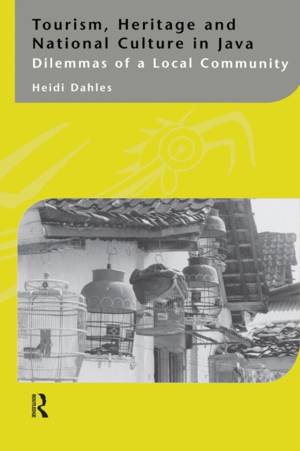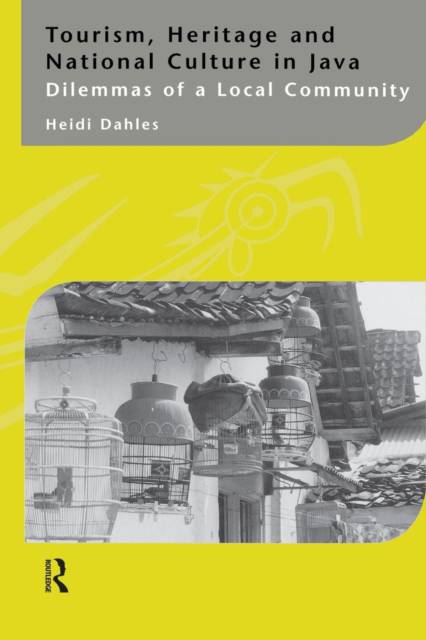
- Retrait gratuit dans votre magasin Club
- 7.000.000 titres dans notre catalogue
- Payer en toute sécurité
- Toujours un magasin près de chez vous
- Retrait gratuit dans votre magasin Club
- 7.000.0000 titres dans notre catalogue
- Payer en toute sécurité
- Toujours un magasin près de chez vous
Tourism, Heritage and National Culture in Java
Dilemmas of a Local Community
Heidi DahlesDescription
Based on anthropological fieldwork in the 1990s, this book provides an ethnographic perspective in its examination of the politics and policies of cultural tourism as they were played out under the Indonesian New Order regime. The successful New Order tourism policy ensured that tourism development both contributed to, and benefited from, increasing economic prosperity and a long stretch of political stability. However, that success has come at a price; the policy to encourage mainly 'high-quality' tourism revolved around carefully constructed and controlled tourist experiences that have led to local inequalities. The failure of this policy is analysed in a detailed case study of the city of Yogyakarta.
Spécifications
Parties prenantes
- Auteur(s) :
- Editeur:
Contenu
- Nombre de pages :
- 257
- Langue:
- Anglais
Caractéristiques
- EAN:
- 9781138863408
- Date de parution :
- 09-06-15
- Format:
- Livre broché
- Format numérique:
- Trade paperback (VS)
- Dimensions :
- 152 mm x 229 mm
- Poids :
- 408 g

Les avis
Nous publions uniquement les avis qui respectent les conditions requises. Consultez nos conditions pour les avis.






